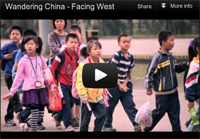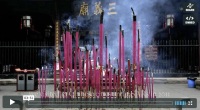AsiaOne: Cafe in Singapore rides the wave of the East Asian island dispute by reaching out through a true-blue Singaporean, if not their primary past-time – food.
Singapore is multicultural by legacy, design and device, and expressed largely through the collective love of diverse foods – the more diverse the better – anyone who visits Singapore can attest to this – it is a global epicentre for cuisine in both high and low places. Peace Centre where this cafe is located is somewhat in the city, but nowhere near the central business district.
There is limited space in Singapore – we are all of 42km wide with barely 20km running north-south. It is the second smallest country in Asia and urban density stands about 12,000/sqkm. 40% of the island is thankfully zoned as a green belt because we cannot do without the rain catchment areas, for now. That also means more than 5+ million (3m citizens, 1m Permanent Residents, the rest imported workers) share a living space of around 400+sqkm. Of course that means if everyone had to stretch out their arms all at once it would be a problem. Most live high-rise, so at any one time the reality of that density is not apparent. Helps that it is a 24-hour city too, makes movement a little bit more spaced out.
Having spent the past three years on travelling cycles of – Australia – Singapore – China documenting and getting a first hand view of China I can almost acutely feel the clear impact population density makes. Australia is at 4/sqkm (in June 2010 it was 2.9), China at 116/sqkm, Singapore – as I mentioned, about 12,000. The difference is clear.
I’ve mentioned a few times over the course of the past two years that population density through a decade of opening floodgates, is becoming a serious problem but I digress. I think the reality that the authorities had no qualms allowing this name to be used for the business as positive. They banned Ministry of Sound from setting up a dance club in Singapore because they felt the Ministry name would resonate negatively with officialdom. They eventually relented after years of deliberation, but case in point.
And that there is a large body of Japanese and Taiwanese working and living in Singapore for decades, I know many of them frequent the area – with no qualms, I think here is where Singapore can be a useful model. Despite the ongoing online vitriol for the past two years, they qualify as growing pains – any host nation can attest to that, as you add more layers to your identity, some meet, other’s don’t, and some just need a bit more fine-tuning, talked over a meal perhaps!
This is a great read by Professor Brenda Yeoh from the National University of Singapore –
Rapid Growth in Singapore’s Immigrant Population Brings Policy Challenge (Migration Information Source, April, 2012) if you’d like a pulse of Singapore’s challenge towards this aspect of globalisation – convergence of movement and with divergence needing attention of consensus, felt made more apparent in confined space.
– – –
Sophia Rd cafe cashes in on island dispute
By Adrian Lim, for myPaper
Source – AsiaOne, published November 6, 2012

Source – AsiaOne, 2012. Photo from myPaper
SINGAPORE – The decor is nostalgically Singaporean while the affordable food served includes casual Chinese-Hong Kong fare like bolo buns.
But this street-facing cafe at Peace Centre in Sophia Road, which opened two weeks ago, bears a moniker which might raise a few eyebrows.
It is called Diao Yu Dao, named after the group of disputed islands in the East China Sea, hotly contested by China and Japan for sovereignty. Read the rest of this entry »
Filed under: AsiaOne, Beijing Consensus, Charm Offensive, Chinese overseas, Culture, Democracy, East China Sea, Government & Policy, Greater China, History, Hong Kong, Influence, International Relations, Mapping Feelings, Media, Nationalism, Overseas Chinese, Peaceful Development, Politics, Social, Taiwan, Territorial Disputes, The Chinese Identity, The construction of Chinese and Non-Chinese identities, China's Rise, culture, East China Sea, History, Identity, International Relations, Overseas Chinese, Politics, Public Diplomacy, Singapore















The Sharing Circle